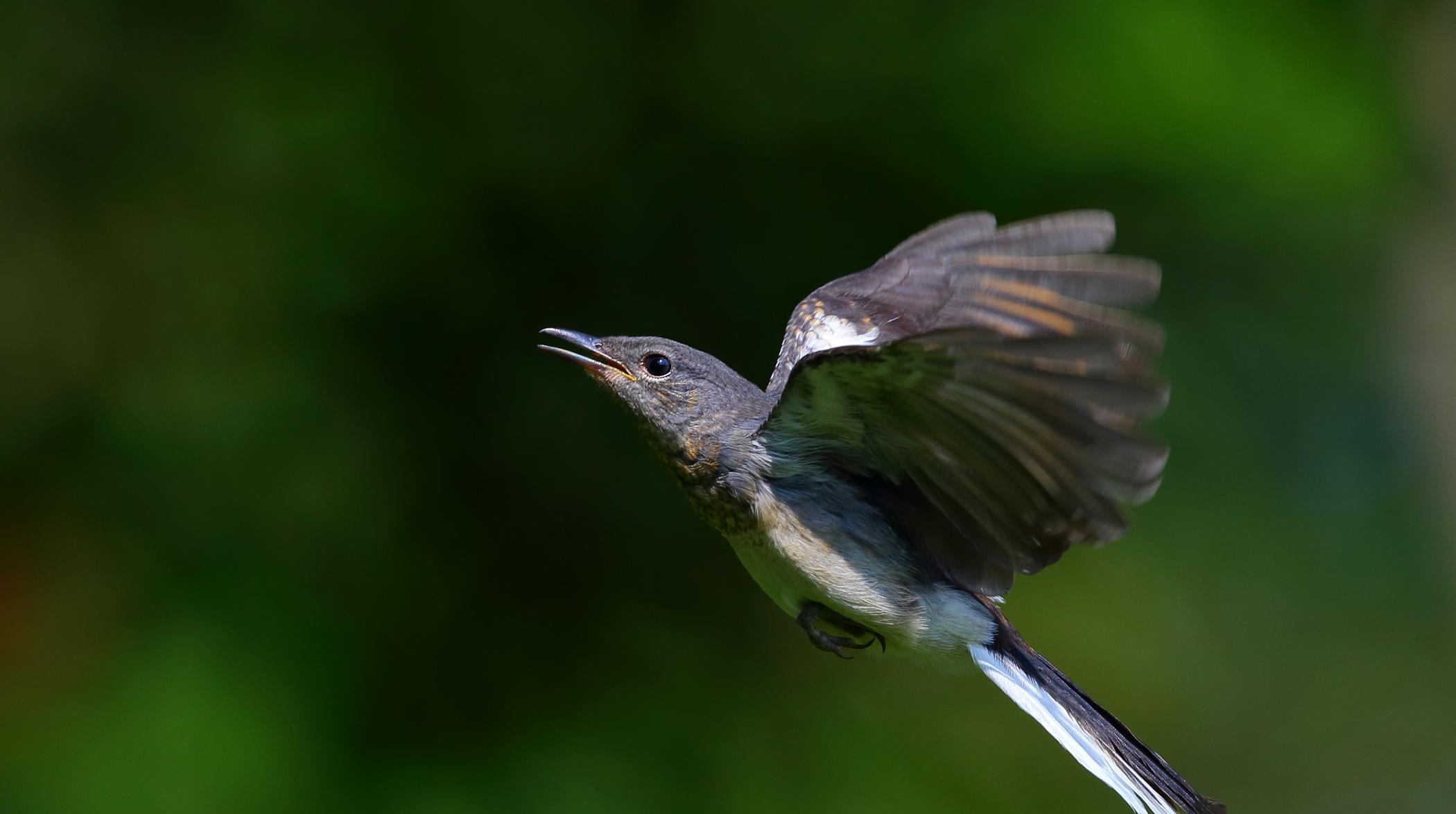The magpie plover is a resident bird in Shenzhen and is a common bird in Shenzhen. Sexually lively, bold, fearless, aggressive, especially during the breeding season, often fighting for the sake of mates. Individual or paired events. At rest, the tail is often spread and tailed, and sometimes the tail is tilted upwards to the back, and the tail tip is almost in contact with the head. In the early morning, it is often standing high in the treetops or on the roof, and the song is gentle and pleasant. Especially during the breeding period, the male birds are more exciting and changeable, and in other seasons, they are also good at singing in the morning and evening, often jumping while chirping. It feeds mainly on insects. The common food types eaten are golden turtle beetles, ladyheads, spades, walking insects, caddisflies, crickets, floating dust, ants, flies, bees, pupae and other coleoptera, lepidoptera, orthoptera, hymenoptera, diptera, homoptera, heteroptera and other insects and insect larvae. It also eats other small invertebrates such as spiders, snails, centipedes, and occasionally small vertebrates and plant fruits and seeds such as frogs.

Magpie Plover sub-adult birds
The Magpie Plover is about the same size as the Red-rumped Plover and slightly larger than the Red-eared Plover. The difficulty of the flying version is similar to that of the red-rumped crane.
Male magpie plover
The magpie duck sometimes makes a good call, but when frightened, it is annoying because its call will scare other birds away. If you plan to shoot other birds, wait for the birds to get closer, and be called by the magpie fan nerves not far away, and immediately abandon their previous achievements.
Magpie Plover in flight
Magpie Plover prefers to live alone and has its own territory.
An adult magpie bird catches a cicada